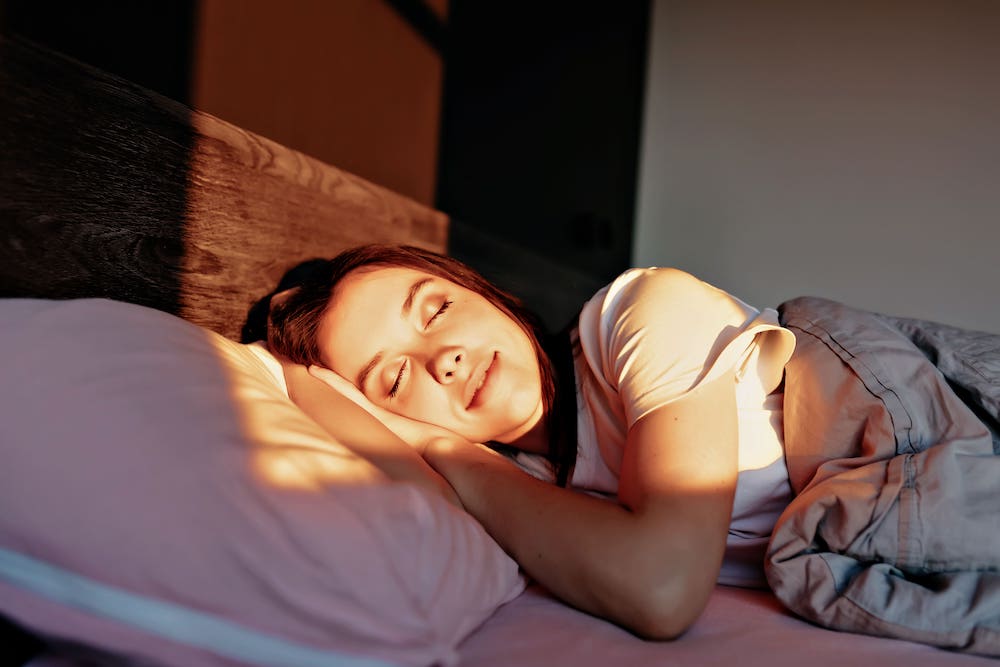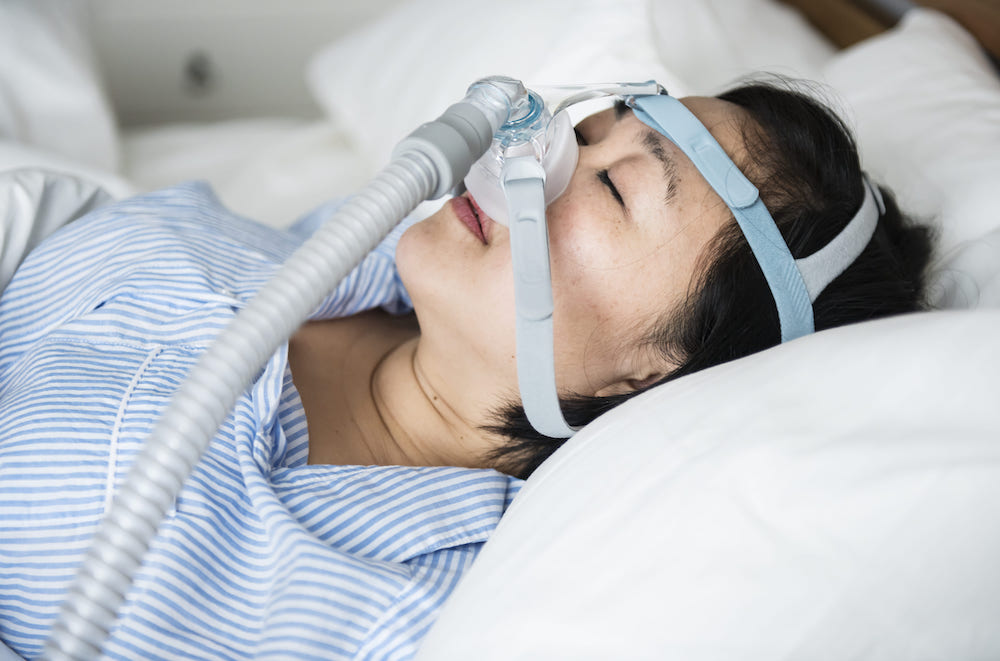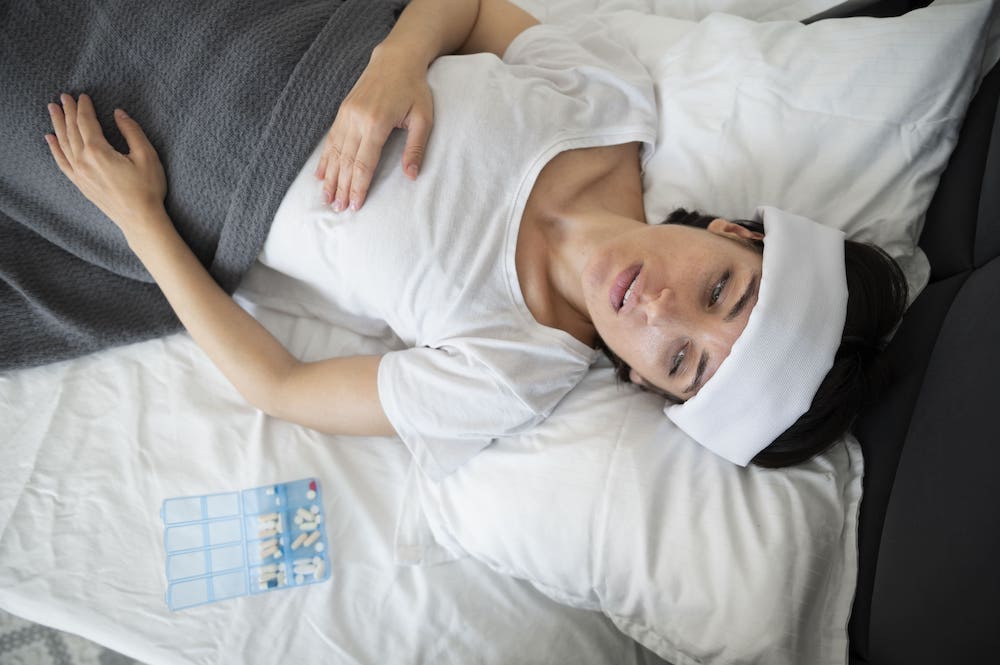
Sleep apnea is a serious health condition that repeatedly causes the body to stop breathing during the night. This can have a range of negative impacts, including brain fog, which can then impact many parts of life when you are awake. The best way to tackle this is to address the sleep apnea itself, not the problems that it causes.
What is sleep apnea?
Sleep apnea can be caused by the throat muscles blocking the airway, or by issues with the brain sending signals to the muscles used to breathe.
When this happens, your body thinks that it is suffocating and wakes you up, leading to badly interrupted sleep night after night. The impact of this on your life can include brain fog, such as poor memory, struggle to focus, and confusion.
How sleep apnea affects the brain. Can sleep apnea cause brain fog?
Every part of us benefits from regular, healthy sleep, and that includes our brains. Your brain needs sleep to be able to form the new pathways needed to remember things and learn skills. It uses the time when you sleep to process all the new information that you have received during the day. When your sleep is continually interrupted because you keep waking up to breathe, the brain is deprived of this essential healing and processing time. As the brain controls almost every other aspect of our lives, this can a major problem.
As well as the impact of interrupted sleep, the deprivation of oxygen to the brain from sleep apnea can itself cause problems with thinking and memory. Like the rest of the body, the brain needs a regular and steady supply of oxygen to work properly. When sleep apnea is present, not only does the brain keep being awakened when it is trying to restore itself from the day and process the information it has received, it also lacks the essential fuel it needs to operate while doing so.
Studies have also shown that toxins build up in your brain while you are awake and are cleared while you sleep. A lack of proper sleep causes these toxins to keep building up. Furthermore, sleep apnea disrupts your circadian rhythm, which in turn reduces the energy produced in cells to power other functions. This too can have an impact on brain function.
If sleep apnea causes brain fog, it is essential to address the cause not the symptoms by tackling the sleep apnea itself.
Treating brain fog caused by sleep apnea
Continuous Positive Airway Pressure (CPAP)
The most common treatment for sleep apnea is CPAP. This is a machine that forces compressed air through the nose and mouth to keep airways open. This can be very effective, as it both ensures that a continuous supply of oxygen is available to the brain and the body, and also greatly reduces interruptions to sleep. Using a CPAP machine means wearing a mask while sleeping, and getting used to this and the sensation of air being forced into your nose and mouth can take a little while to get used to.
Expiratory Positive Airway Pressure (EPAP) Valves
EPAP Valves fit over your nostrils and create pressure in your airways as you breathe out to ensure that they remain open when you next breathe in. They do not produce the same amount of pressure as a CPAP machine, but a lot of people with sleep apnea do find that they help. Their advantage is that they are considerably less bulky and intrusive than a CPAP machine, and do not require a power source.

Oral Pressure Therapy (OPT)
OPT does require a machine and a mouthpiece but is still less invasive than CPAP. It works by creating pressure in the mouth to keep the tongue in a forward position and the airways open. While effective for some, it does not work for everyone.
Continuous Negative External Pressure (cNEP)
A newer approach is cNEP. This uses negative air pressure on the outside of the neck to pull the throat open during sleep. Early trials have shown that it can be effective for some people.
The key point here is to recognise that there are a variety of different treatments available, and it is important to find the one which works best for you. There is no one size fits all solution.
Lifestyle changes needed to improve sleep and reduce brain fog
As well as medical interventions to treat sleep apnea while it occurs, there are also some lifestyle changes that can help alleviate symptoms.
Weight loss and exercise
While being overweight may not be the direct cause of sleep apnea, it can make it worse as fatty tissue in the neck contributes to closing airways. Moving towards a healthier weight and improving your breathing through exercise can, therefore, help to reduce the impact of sleep apnea. In particular, exercises that strengthen the muscles in your mouth and throat can be beneficial.
Sleep position
In some cases, sleeping on your side rather than your back can make a big difference. This can be aided by a device that vibrates when you roll onto your back while asleep, or by using pillows to hold you in the best position.

Tobacco and alcohol
Both tobacco and excessive consumption of alcohol are bad for your health in general, so will not help with sleep apnea. Smoking can cause lung issues and reduce blood oxygen levels, and has been shown to make sleep apnea worse. Alcohol in the evening can cause your throat muscles to relax while sleeping, further constricting airways.
Brain fog and sleep apnea: Conclusion
Sleep apnea often leads to brain fog both through interrupted sleep and reducing oxygen to the brain. It can be a dangerous condition and will not disappear if ignored. But there are a range of treatments and remedies available, so do not hesitate to seek medical advice if you think you may have sleep apnea.